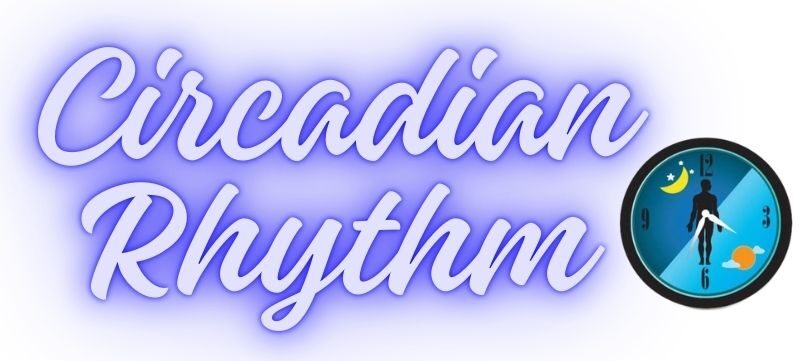Introduction

Ever noticed how your eyes automatically open in the morning, you feel hungry at certain times, and drowsy as night falls? And when we go against these internal cues — like staying up late or eating when not hungry — our body feels tired and our mind restless. Why does this happen?
It’s no coincidence — it’s because of a precise internal natural clock inside us, called the Circadian Rhythm or Biological Clock. It tells the body when to wake, sleep, feel hungry, or recharge — without needing an alarm.
This biological clock isn’t unique to humans; it exists in birds, animals, plants, and even microorganisms. Unfortunately, modern-day erratic schedules, artificial lighting, and digital lifestyles have disconnected us from this natural rhythm — impacting our health, mood, digestion, hormones, and immunity.
In this blog, let’s dive deep into:
- What is the Circadian Rhythm?
- How does it work and which body functions it controls?
- Its role in animals and nature.
- Why humans must follow it.
- How to realign your life with this biological rhythm.
1. What is Circadian Rhythm?
The Circadian Rhythm is a natural internal clock that regulates our body’s biological processes over a 24-hour cycle. It controls sleep-wake times, hormone levels, body temperature, digestion, and mental alertness.
It’s regulated by the Suprachiasmatic Nucleus (SCN) in our brain, which responds to light and darkness. As the sun rises, our body moves toward alertness, and after sunset, prepares to relax.
2. How Does This Biological Clock Work?
When sunlight reaches our brain through the eyes, the SCN activates and signals various hormonal systems:
- Morning: Cortisol releases, making us active.
- Afternoon: Maximum alertness and peak digestion.
- Evening: Melatonin production increases, preparing for sleep.
- Night: The body enters repair mode, and the immune system activates.
This cycle repeats daily — unless disturbed by modern lifestyle.
3. Do Only Humans Have a Circadian Rhythm?
Not at all — every living being follows a natural rhythm:
- Birds: Chirp at sunrise and return to nests at sunset.
- Flowers: Turn toward sunlight and wilt at night.
- Animals: Many hunt only at night (nocturnal).
- Plants: Breathe in oxygen at night and release during the day.
This proves nature works like a well-tuned orchestra — and when we fall out of sync, it leads to imbalance and illness.
4. Modern Lifestyle vs. Circadian Rhythm
Today’s hectic life has ruined our sleep schedule, random eating, and constant exposure to digital blue light at night — disturbing our internal clock.
Effects:
- Sleep deprivation and fatigue
- Obesity
- Depression and anxiety
- Diabetes and hypertension
- Digestive disorders
- Hormonal imbalances
These are the hidden costs of breaking away from our Circadian Rhythm.
5. Why Is Living According to the Biological Clock Important?
(1) Sleep & Mental Health:
Sleeping between 10 PM – 6 AM ensures enough REM (Rapid Eye Movement) and deep sleep for memory, emotional balance, and mental health.
(2) Digestion & Metabolism:
6–10 AM is when digestion is strongest. Heavy dinners at night disrupt digestion and cause obesity, acidity.
(3) Hormone Balancing:
After sunset, the body needs repair. Staying awake inhibits melatonin, leading to stress and hormonal issues.
(4) Immunity:
At night, cells repair themselves. Sleep deprivation weakens immunity.
6. How to Restore Circadian Rhythm
- Wake and sleep with the sun
- Limit screen time at night
- Fix meal timings — heavy breakfast, balanced lunch, light dinner
- Exercise daily (morning/evening)
- Mindfulness & Meditation in the morning
7. Ayurveda & Circadian Rhythm
Ayurveda divides the day into Vata, Pitta, and Kapha cycles — ancient wisdom that aligns life with nature:
- Brahma Muhurta (4-6 AM) for yoga and meditation
- Noon for digestion
- Night for rest and repair
8. Conclusion: Align With Nature for a Simpler Life
Our inner clock signals us daily — when to eat, sleep, work, or pause. But modern life deafens us to these cues.
If we restore this connection — waking up with the sun, eating at the right times, prioritizing sleep, and avoiding digital distractions — we can not only avoid disease but live a mentally and physically empowered life.
True Fit Disclosure Recommendation
At True Fit Disclosure, we believe in merging scientific facts with ancient wisdom for real fitness. If you want to reconnect with your natural clock, join our 30 Days Wellness Challenge or Miracle Morning Sessions, where we teach how to upgrade your lifestyle step-by-step.
